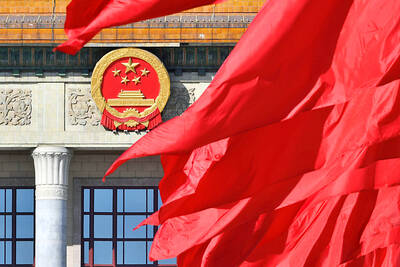To the cautious relief of hundreds of thousands of people fearing contamination from Japan's worst nuclear accident, the government yesterday lifted an advisory or-dering residents near the plant to stay indoors.
Officials said the accident Thursday morning at the uranium processing plant in Tokaimura in northeastern Japan had been contained, but only after sending three workers to the hospital.
The lifting of the advisory came as the private company that ran the plant acknowledged serious violations of in-house safety rules were behind the accident.
Within hours after the accident, the government had evacuated 160 people within a 350-meter radius and told 310,000 people living within a 10km radius to stay indoors and keep their windows closed.
Yesterday afternoon, top government spokesman Hiromu Nonaka announced the lifting of the advisory, saying the radiation level in the area was back to normal. The evacuation warning for the area immediately surrounding the plant, however, remained.
Life seemed to gradually return to normal, but many people were still on edge.
"It's just too scary. You can't trust the government. Just because they say it's safe doesn't mean it's really safe; does it?" said Kazuo Hashimoto, a teacher from Hitachi, one of the towns near Tokaimura where people had been warned to stay indoors. "I don't think I'm going to feel comfortable being outdoors for a very long time."
Doctors also say that no one can totally rule out the long-term health risks of exposure to even low levels of radiation, especially for young children.
The International Atomic Energy Agency, which operates under the auspices of the UN, said the accident was more serious than originally believed and offered its assistance to the Tokyo government.
A total of 49 people were exposed to the radiation, the National Police Agency said. Among these were three firefighters, 36 workers and seven people who were working at a golf range near the plant.
Two workers -- Hisashi Ouchi, 35, and Masato Shinohara, 39 -- remained in critical condition yesterday, though their conditions had improved. All three hospitalized workers remained in intensive care. Their symptoms include diar-rhea, fever, a high white-blood-cell count and reddened skin.
The accident was the most serious ever at a nuclear facility in Japan, and is the first time one has accidentally gone critical -- meaning that the fission reaction becomes self-sustaining.
See also: Chain Reaction

US PUBLICATION: The results indicated a change in attitude after a 2023 survey showed 55 percent supported full-scale war to achieve unification, the report said More than half of Chinese were against the use of force to unify with Taiwan under any circumstances, a survey conducted by the Atlanta, Georgia-based Carter Center and Emory University found. The survey results, which were released on Wednesday in a report titled “Sovereignty, Security, & US-China Relations: Chinese Public Opinion,” showed that 55.1 percent of respondents agreed or somewhat agreed that “the Taiwan problem should not be resolved using force under any circumstances,” while 24.5 percent “strongly” or “somewhat” disagreed with the statement. The results indicated a change in attitude after a survey published in “Assessing Public Support for (Non)Peaceful Unification

The CIA has a message for Chinese government officials worried about their place in Chinese President Xi Jinping’s (習近平) government: Come work with us. The agency released two Mandarin-language videos on social media on Thursday inviting disgruntled officials to contact the CIA. The recruitment videos posted on YouTube and X racked up more than 5 million views combined in their first day. The outreach comes as CIA Director John Ratcliffe has vowed to boost the agency’s use of intelligence from human sources and its focus on China, which has recently targeted US officials with its own espionage operations. The videos are “aimed at

‘MISGUIDED EDICT’: Two US representatives warned that Somalia’s passport move could result in severe retaliatory consequences and urged it to reverse its decision Minister of Foreign Affairs Lin Chia-lung (林佳龍) has ordered that a special project be launched to counter China’s “legal warfare” distorting UN Resolution 2758, a foreign affairs official said yesterday. Somalia’s Civil Aviation Authority on Wednesday cited UN Resolution 2758 and Mogadishu’s compliance with the “one China” principle as it banned people from entering or transiting in the African nation using Taiwanese passports or other Taiwanese travel documents. The International Air Transport Association’s system shows that Taiwanese passport holders cannot enter Somalia or transit there. The Ministry of Foreign Affairs (MOFA) protested the move and warned Taiwanese against traveling to Somalia or Somaliland

SECURITY: Grassroots civil servants would only need to disclose their travel, while those who have access to classified information would be subject to stricter regulations The government is considering requiring legislators and elected officials to obtain prior approval before traveling to China to prevent Chinese infiltration, an official familiar with national security said yesterday. President William Lai (賴清德) in March announced 17 measures to counter China’s growing infiltration efforts, including requiring all civil servants to make trips to China more transparent so they can be held publicly accountable. The official said that the government is considering amending the Act Governing Relations Between the People of the Taiwan Area and Mainland Area (臺灣地區與大陸地區人民關係條例) to require all civil servants to follow strict regulations before traveling to China.